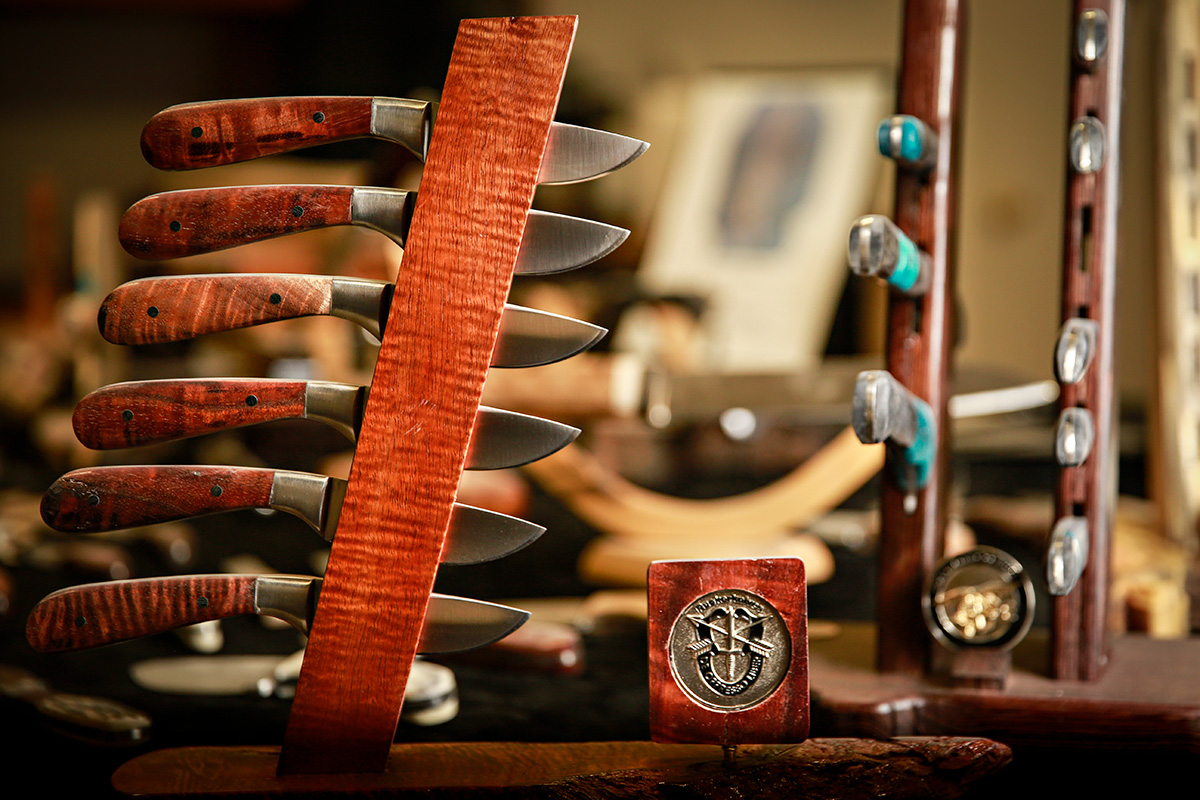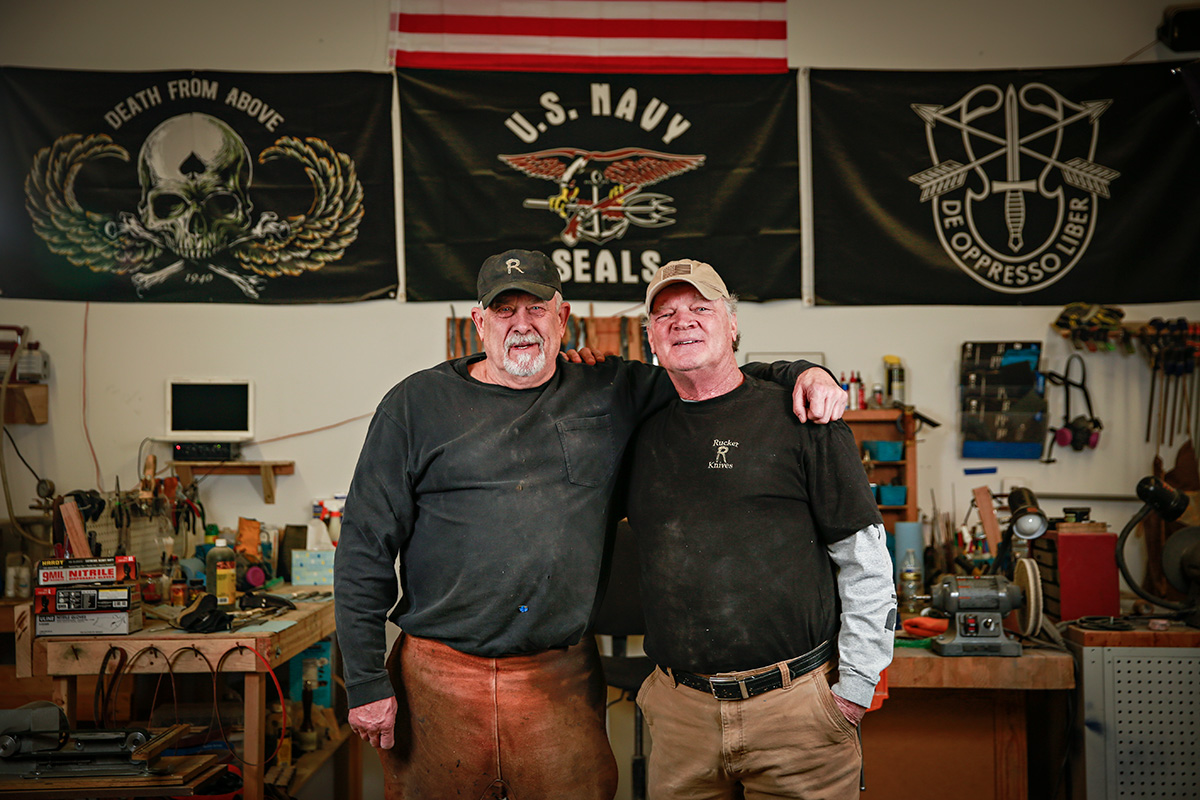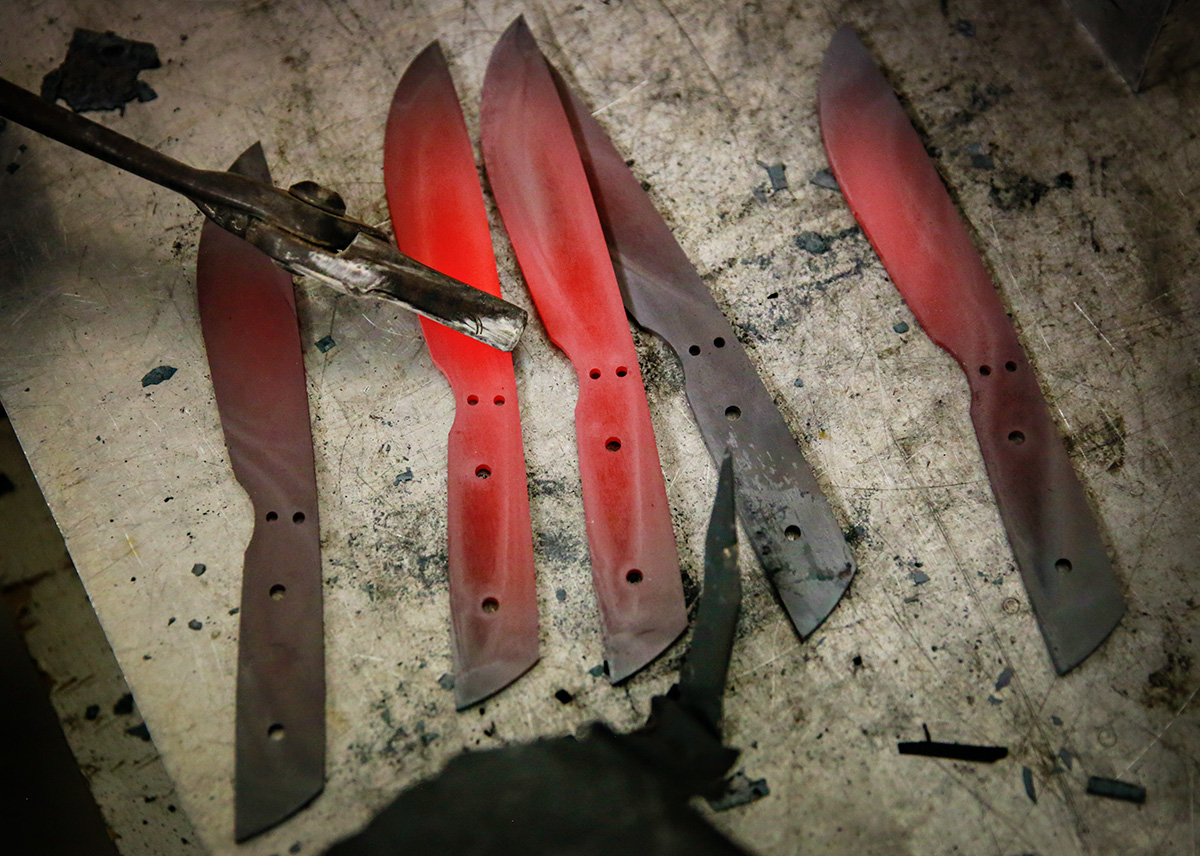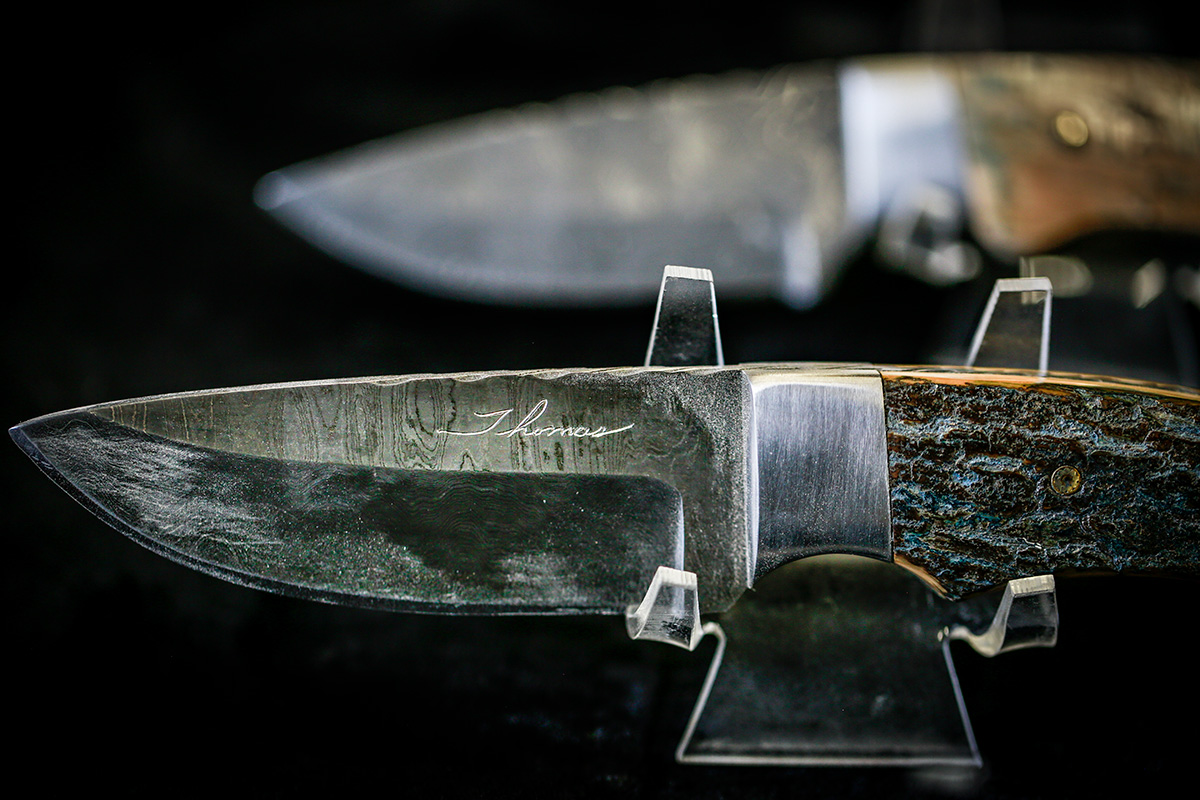Knife Veterans
Special operations veterans formed Rucker Knives in the Flathead, where they make top-tier knives, run a knife-making school and continue to give back to veteran organizations
By Maggie Dresser
Before Thomas Rucker began a career in the U.S. Army, where he eventually became a Green Beret, he started making knives when he was just 8 years old. Aside from a few mentors over the years, like famous knife maker Weldon Whitley, he’s mostly self-taught and has been selling knives professionally for 40 years.
Originally from Houston, Rucker and his wife moved to the Flathead five years ago where he met Jesse Brown, a former U.S. Navy SEAL. Soon after meeting, Rucker showed Brown the art of knife making and they started Rucker Knives in January of 2020, with help from another Navy SEAL, James Kneebone.
“We sell all over the country right now,” Rucker said. “We turn out 40 knives in a good week … Jesse has become a master maker all by himself.”
As the Navy’s first marine mammal health specialist and a former special operations technician and diving medical technician, Brown moved to Montana in 1978 where he says he helped start the state’s physician assistant program. But despite his career in medicine, he says knife making is his true passion.

At their shop in Evergreen, Rucker, Brown and Kneebone make an assortment of knives ranging from kitchen cutlery to hunting and combat knives.
“We do a little bit of everything,” Brown said.
Many of the knives are made with Damascus steel, which is layered and welded to create a feathered pattern. The Damascus knives often have hundreds of layers, and Rucker has even made one with 1,000 layers.
One of Rucker’s knives won the NRA knife of the year twice, in 2009 and 2011. His wife, Debi, did the scrimshaw on the knife, which was later auctioned for $10,000.
In addition to the steel, the knife makers also create custom handles, which include a high-pressure fiberglass called G-10, camel bone, local blue pine, water buffalo and even mammoth ivory, which was found frozen in the tundra.

Rucker and Brown also created a knife school at the shop, where they teach up to four students at a time to make their own knives. Students can choose between a stock removal knife class, where they use a template, or they can take a three-day class to make a forged knife with Damascus.
Students use industrial band saws and grinders and forges, which heat steel to more than 3,000 degrees.
“We have a lot of students who take what we have to modify it to what they really like,” Rucker said. “They leave with a knife they really want.”
As special operations veterans, Rucker, Brown and Kneebone are also working with local veterans suffering from post-traumatic stress disorder to show them the art of knife making.

“We decided we would set up forges so we can bring in PTSD guys and work with them and spend a week with them forging knives,” Rucker said. “I think that’s part of the healing with PTSD — you find that you’re not unique and there’s other people who have been through what you’re going through.”
Rucker and the other knife makers also memorialize many of the knives they make, and they’ve crafted seven knives made from World Trade Center steel that they’ve donated to charitable organizations.
Rucker Knives also donates a portion of its profits to veteran programs, including the Navy SEAL Foundation.
For more information, visit www.ruckerknives.com.